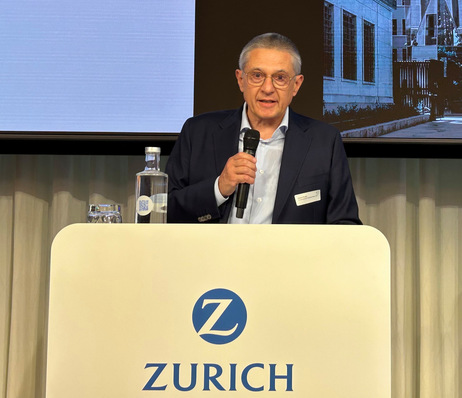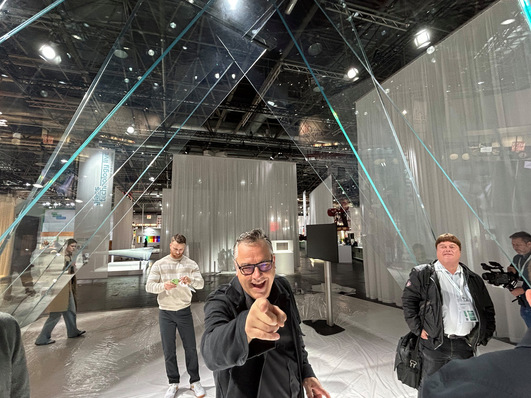Hans-Joachim Arnold pointed out the role of the glass industry in overcoming the current crises right from the start of his welcoming speech: "We are part of the crisis, and at the same time we are part of the solution," emphasised the Chairman of the Supervisory Board of Isolar Glas Beratung and Chairman of the Board of Directors of the Arnold Glas Group.
He went on to emphasise that despite the developments in energy costs and supply chains in recent weeks and months, the crisis also represents a great opportunity. Arnold: "Especially for medium-sized companies, new opportunities are opening up because markets are becoming more regional."
Lobbying for the glass industry

Isolar Glas Beratung
The opening lecture of the diverse programme of lectures was given by Thomas Drinkuth, Head of the Representative Office Transparent Building Envelope (RTG), Berlin. His topic was "Political efforts in the field of energy efficiency of buildings and developments in the building industry".
RTG lobbies in German government circles and strives to win over decision-makers for more energy efficiency. In his remarks, Thomas Drinkuth emphasised that global warming is an incontrovertible fact and that in the meantime, measures to adapt to climate change must be taken in any case.
And in addition to the climate and corona crises, he sees an "investment crisis" right now: Furthermore, he recognises a tendency away from new construction and towards the refurbishment of existing buildings. Glass workers should adjust to this and adjust their product portfolio accordingly, he advises.
Nickel sulphite inclusions are a long standing issue
In his contribution on "Nickel sulphite inclusions in TVG", Dr. Andreas Kasper gave an in-depth overview of the state of research on NiS inclusions.
Background: During the production of float glass, nickel sulphite crystals can form in the glass.
[What to expect at Glasstec 2022]

Malte Forstat, GW-News
In the course of further processing to ESG and TVG, in rare cases a crack can spontaneously form at such a point (nickel sulphide spontaneous fracture), which destroys the glass pane virtually without warning.
In his remarks, he drew on his own research of the last 30 years and contrasted it with the results of his colleagues. He also emphasised that nickel sulphide spontaneous fracture can be prevented by means of a heat-soak test. Dr Andreas Kasper: "Processors who want to be on the safe side with ESG should rely on the Heat-Soak-Test."
New opportunities for glass processors
Hannes Spiß, Managing Director of Isolar Glas Beratung, and Mascha Baitinger, Ingenieurbüro Verrotec (Mainz), focused on the "Sustainability potential of the glass industry" in their joint presentation.
And here, too, the basic tenor was positive: in Europe there was a noticeable trend towards urbanisation and more single households. And this also offers new market opportunities for the glass industry. Baitinger emphasised that the glass used plays a key role in sustainable building, especially since the glass material is showing noticeable growth both in the facade and in the interior.

Malte Forstat, GW-New
For the use of new glass applications and new supplier products, she mentioned, for example, the 3D printing of (glass) spacers and fastening elements and the use of glass as a static load-bearing construction element. She also pointed out the importance of using glass for photovoltaic applications and as part of solar facades and roofs.
[Isolar Ornilux: How bird protection glass works]
A side trip to the glass manufacturer Riedel Glas and to the glass school of the HTL Kramsach, with which Hans-Joachim Arnold and Hannes Spiß maintain close contacts, rounded off the programme.
The next Isolar Glas conference will take place in 2023 in Potsdam.













